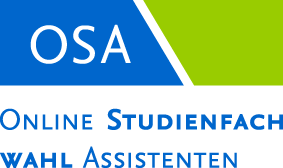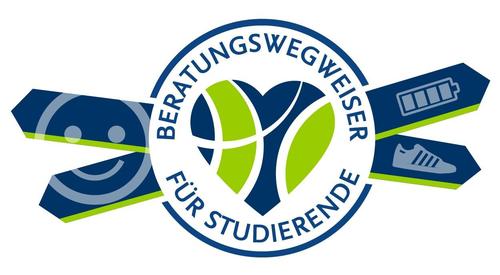Undergraduate program
| Please note: The Mono Bachelor Educational Science is instructed in German. Sufficient German knowledge is a key requirement for successful admission! We do our best to keep the English version of the Examination Office's website up to date. If you are able to, we advise you to refer to the German version as well. |
What is the profile of the bachelor's degree Educational Science?
The Bachelor's degree Educational Science is a research and application-oriented "Mono" (single-subject) Bachelor's course (180 CP) that educates students on an interdisciplinary level. Graduates have access to a broad spectrum of possible future fields of work.
During the course of their studies, students are granted an insight into various fields of activity relevant to educational science such as early childhood and adolescence, further education or education management. Particularly noteworthy is the comprehensive basic training in empirical research methods (quantitative and qualitative methods).
In addition, the Faculty of Education and Psychology has a mentoring program (only in German). Through this, first-semester students, as so-called "mentees", have the opportunity to get paired with an experienced student mentor from a higher semester to guide them (student to student support) during their first semester. In addition to the mere course content, this can provide support, for example, in navigating the new everyday university life, in structuring independent learning and / or in coordinating between your new place of residence and jobs to finance your studies.
Which personal priorities are possible?
Individual interests can already be found and developed during the mandatory internship (3rd semester), as well as through the specialization section in the degree and the associated projects (starting from the 4th semester) as well as in the final bachelor thesis. Freely selectable module offered in the affiliative courses and the general professional skills courses (ABV) also create opportunities to supplement your own thematic fields of action across the board (e.g. with regard to your later professional career).
What are the options after graduation?
- The bachelor's degree Educational Science entitles graduates to continue their studies through various research and application-oriented master's programs. For further academic training, the Freie Universität Berlin offers the consecutive Master’s course Educational Research (120 CP) in the Faculty of Education and Psychology to name one example.
- A master’s degree entitles graduates to pursue a doctorate.
- It is also possible to enter an educational work field directly after graduation. Here you will find insights into possible career prospects (only in German).
What is the difference between university and "Hochschule" (College for Applied Sciences)?
Bachelor programs at universities are research and application-oriented. Studying at a university, furthermore, leads students more clearly into the scientific field than at a "Hochschule". Here, students have the opportunity and the personal responsibility to set a personal focus. The later professional and research practice after graduation is relatively open and flexible. In contrast, courses of study at a "Hochschule" (College for Applied Sciences) are more oriented towards practice in a specific occupational field and generally more hands on.
Social work courses at a "Hochschule" in Berlin usually end with state recognition in accordance with the "Sozialberufe-Anerkennungsgesetz Berlin" (Berlin Social Professions Recognition Act). This does not apply to the Bachelor course Educational Science at the Freie Universität Berlin.
- According to the study and examination regulations 2012 graduates (only in German) are recognized as (social) educational specialists in child and youth welfare (only in German) in various social fields of work on a regional level.
- Regarding the study and examination regulations 2023 graduates (only in German) also get recognized as (social) educational specialists in various social fields of work on a regional level.





